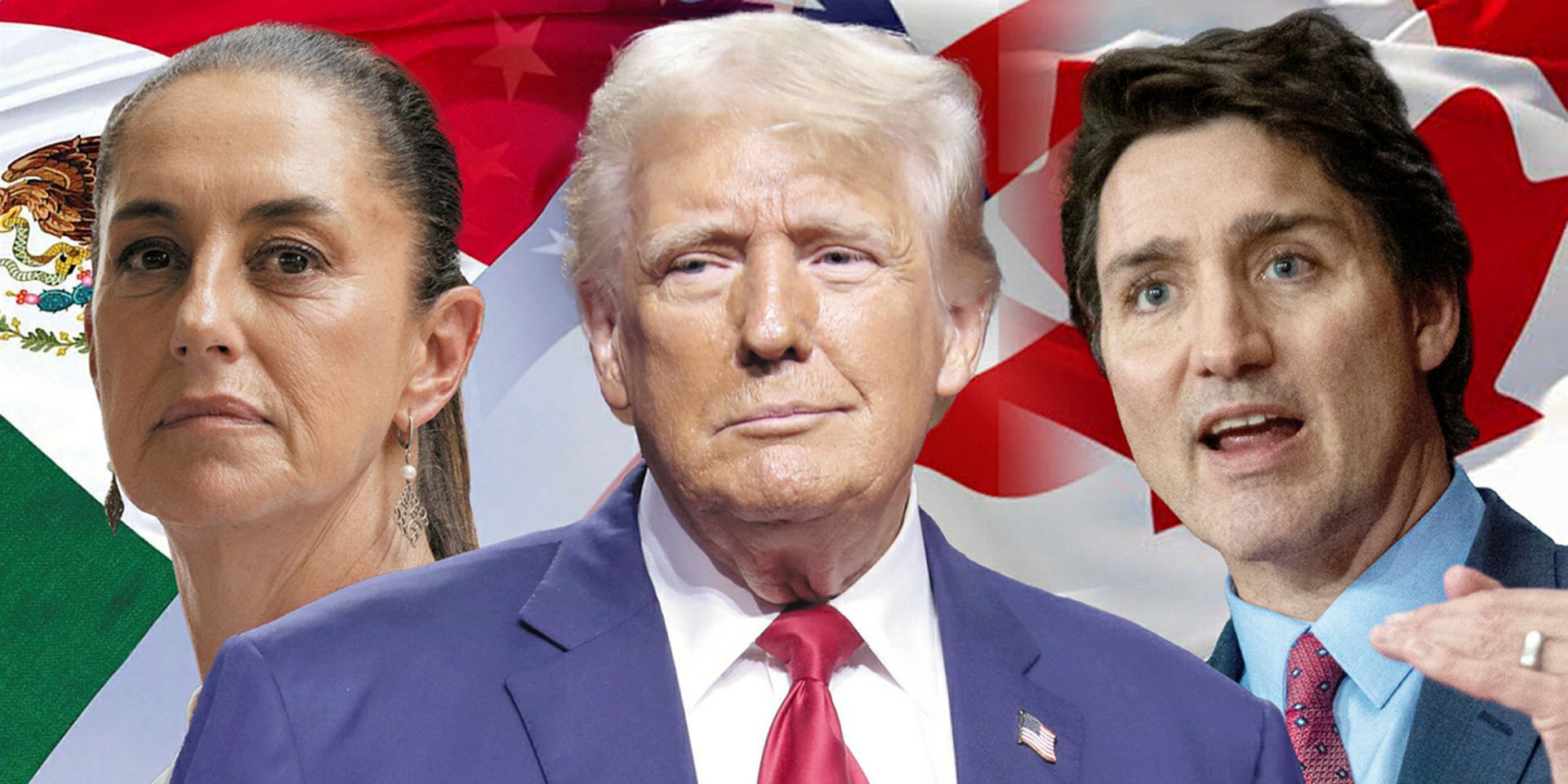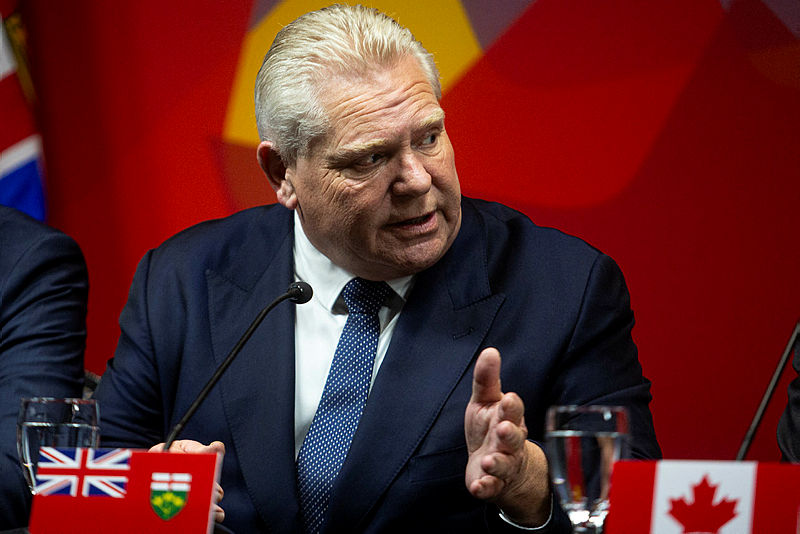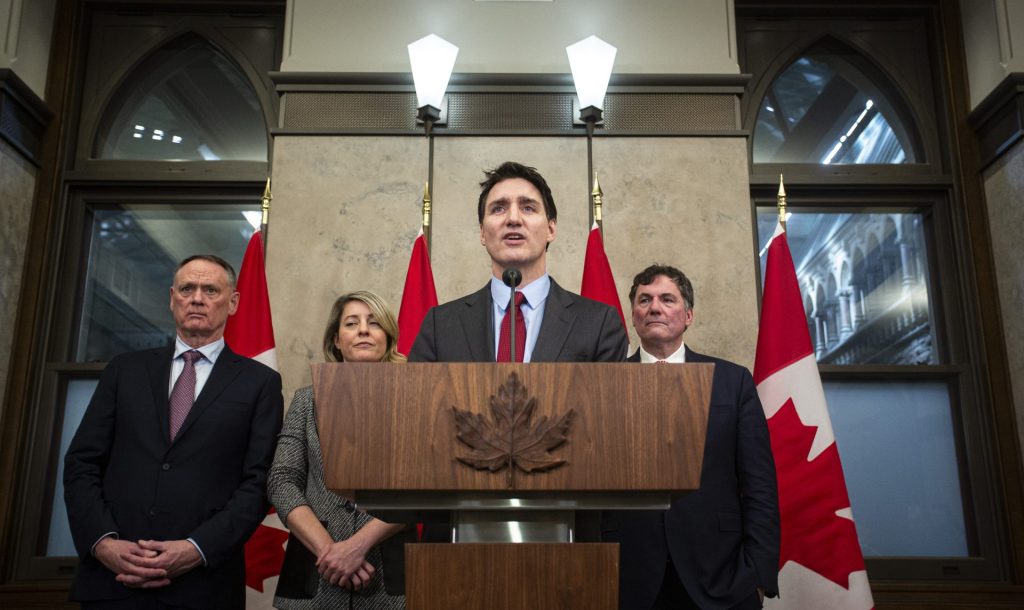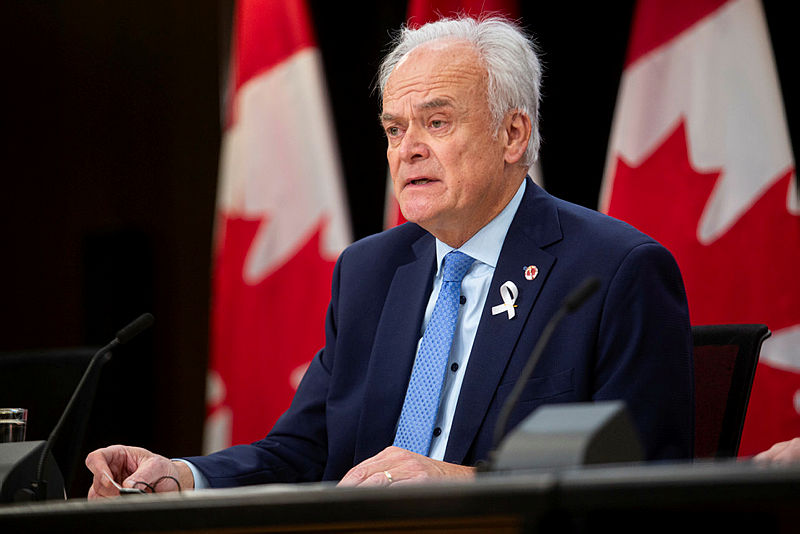‘Divide and conquer’: Canada and Mexico offer unco-ordinated tariff response after premiers’ slights

As Canada and Mexico gained a momentary reprieve from United States President Donald Trump’s planned tariffs, a lack of co-ordination between the two nations reveals mistrust in the relationship, say observers.
While Canadian and Mexican officials have been in contact as Trump has threatened devastating tariffs on imports from their respective countries, the proposed retaliation plan isn’t a co-ordinated effort, according to a senior Canadian government official.
Carlo Dade, a member of the Mexican Council on Foreign Relations, said that is because Canada has thrown Mexico under the bus.
Last November, Ontario Premier Doug Ford suggested that Canada reach separate bilateral pacts with the U.S. and Mexico as opposed to the current trilateral deal, raising concerns over Chinese investment in Mexico. He has also spotlighted the flow of migrants and drugs entering the U.S. from Mexico compared to the situation on the northern border.
That rhetoric targeting Mexico has only continued.
“Do you know what the problem is?” Ford questioned on Feb. 3. “China is the problem. Bringing in cheap goods into Mexico, slapping on ‘Made in Mexico’ stickers, shipping them up to Canada, costing American and Canadian jobs.”
Ford referenced creating a “Can-Am fortress,” a departure for those who argue for a “Fortress North America.”

Alberta Premier Danielle Smith also pushed in November for bilateral deals instead of the trilateral pact.
Then-deputy prime minister Chrystia Freeland (University–Rosedale, Ont.) said in November that there are “legitimate concerns” regarding Mexico’s alignment with U.S. trade policy.
On Feb. 1, Trump signed an executive order to put in place 25-per-cent tariffs on all Canadian and Mexican imports to the U.S., with the exception of a 10-per-cent levy on energy imports.
Trudeau and Sheinbaum spoke with each other that same day about tariffs and enhancing border security, according to a Prime Minister’s Office readout of the call.
After a Feb. 3 call with Trump, Mexican President Claudia Sheinbaum announced that the U.S. president agreed to delay implementing the tariffs on which he had signed off on Feb. 1 for a month as Mexico pledged to send 10,000 troops to its northern border.
Canada had an identical reprieve from tariffs after Prime Minister Justin Trudeau (Papineau, Que.) held two calls with Trump on Feb. 3. In a post on X, Trudeau said that Canada would be appointing a fentanyl czar, as well as listing “cartels as terrorists,” and assembling a Canada-U.S. Joint Strike Force to address organized crime, fentanyl, and money laundering. A “new intelligence directive on organized crime and fentanyl” will be funded with $200-million.
Dade said that the rhetoric from Canada has caused hurt among Mexican officials.
“To be treated like this, not just by Ford, but the sort of acquiescence from the non-strong objection from the federal government certainly will sour relations,” said Dade, director of trade and trade infrastructure at the Canada West Foundation.
“What we did to Mexico was almost Trumpian in the way we threw them under the bus,” he said.
“It was not that we lied or disparaged Mexico, but that we aired dirty laundry in front of Donald Trump, which would give him ammunition to go after Mexico instead of going after Canada,” he said.
Tensions between Mexico and Canada were already heightened as past Mexican president Andrés Manuel López Obrador had announced a diplomatic pause with the Canadian Embassy in Mexico City—as well as the U.S. Embassy—after Canada raised concerns over Mexican judicial reforms. A senior Canadian official confirmed that the Canadian Embassy is in contact with the Mexican government, meaning the pause seemingly has been lifted.
During the NAFTA renegotiations that led to the renewed Canada-U.S.-Mexico Agreement, some believe that Mexico blindsided Canada as it reached a deal on a modernized pact with the U.S., but Dade said the Mexican negotiators were keeping Canada in the loop, so they could quickly join on.
In a December op-ed in The Globe and Mail, Canada’s chief negotiator during the renegotiation, Steve Verheul, argued that the call for a bilateral deal has “unnecessarily created unhelpful negotiating dynamics for Canada and strained relations with a useful ally.”
“Although the relationship had its ups and downs in the last negotiations, Canada and Mexico worked together to successfully thwart some of the more extreme proposals put forward by the U.S.,” wrote Verheul, who has since been appointed a member of Trudeau’s Council on Canada-U.S. Relations.
Dade said without a co-ordinated response, it allows the U.S. to divide and conquer.
“Mexico has gotten special treatment, Canada hasn’t as [Trump] further fractures the North American alliance, and then he’s better able to pick us off one by one,” Dade said, remarking that is what the U.S. wants.
“It’s easier [for the U.S.] to negotiate with those who aren’t co-ordinating their position,” he said. “If you are at a table for three, and the other two are fighting with each other as opposed to joining forces, it makes life easier for you.”

Independent Senator Peter Boehm (Ontario), co-chair of the Canada-Mexico Friendship Group, said the comments from premiers have caused harm.
“Mexicans are very proud, and they know and quickly sense when they are talked down to,” he said. “Early in the process, I think some of our premiers were a bit careless in their comments, saying, ‘Well, we’ll just have a bilateral deal with the U.S. and never worry about Mexico.’”
“Mexico is important for us and we are for them,” said Boehm, who represented Canada at Sheinbaum’s Oct. 2, 2024, inauguration. “The Mexican government is deeply nationalistic, and very, very concerned with their own sovereignty. So, I think a measured approach with Mexico [is needed] knowing that the U.S. approach to us might very well be to divide and conquer.”
He said that Canada needs to be “mindful” of Mexico’s “feelings and sensitivities” as Mexico should be of Canada’s.
Boehm said the lack of a global co-ordinated response to Trump’s tariff threats is due to the uncertainty about what will happen, calling the 30-day tariff reprieve a “stay of execution.”
“What is happening is that Trump is keeping everyone off-balance. We can be as likeminded as we want, but when it comes to your own national interest, countries tend to be single-minded and not like-minded. I think that’s what we’re seeing in this moment,” he said.
Boehm said the lack of Canada-Mexico co-ordination is due to the differences in products that the two countries trade, as well as the differences in regulatory and legislative frameworks.
“It’s clear that the U.S. wants to deal with each country individually,” he said.
He remarked that there might be some opportunity to co-ordinate “if it gets to that point” in a response when dealing with the auto sector, as well as in transport infrastructure.
Former Canadian diplomat Colin Robertson, a Canadian Global Affairs Institute senior adviser, said it is important that Canada and Mexico keep each other informed about their responses.
“I think we’ll take different approaches as we have done in the past,” he said, remarking that there should be a principle of “no surprises” between the two countries.
He said that Canada and Mexico share a “natural interest” in trying to contain the U.S., but Ottawa and Mexico City have “never been close friends.”

He said that comments from Ford and Smith are “not lost on the Mexicans,” remarking that there is a certain “coolness” in the association.
“The Mexicans were sort of offended by it, and it didn’t help the relationship, which was already a bit rocky,” he said, noting that despite officials from the two countries being in contact, it isn’t a “deep, warm relationship.”
Robertson said it is in Canada’s interest to have closer ties with Mexico, but that has never materialized.
“It’s too bad, and it’s not too late,” he said. “It just never took.”
nmoss@hilltimes.com
The Hill Times






 LICENSING
LICENSING PODCAST
PODCAST ALERTS
ALERTS













